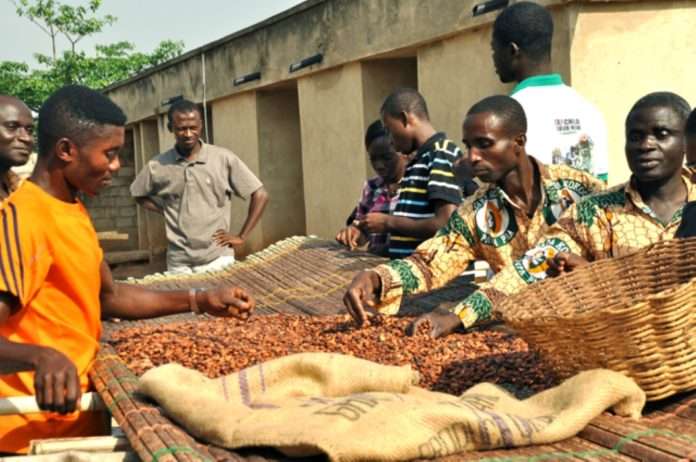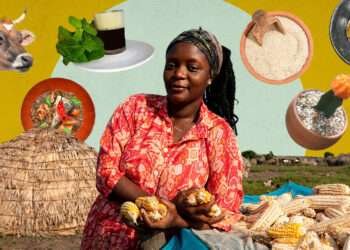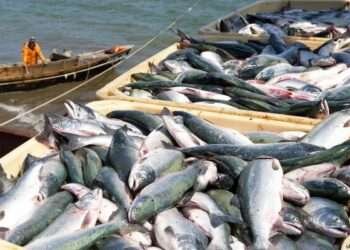Bryan Acheampong, the Minister for Food and Agriculture, has stated that his ministry will continue to fight for good pricing of Ghana’s cocoa beans to improve the livelihood of the cocoa farmers in the country.
According to the Minister, the country will collaborate with neighbouring country Cote d’Ivoire to collectively protect the interest of cocoa farmers.
Bryan Acheampong disclosed that the two countries in 2019, pushed for a $400 living income differential solely for cocoa farmers.
“Countries have their cocoa pricing mechanisms. However there are underlying factors that affect us all. That is why we are meeting as leading producers of cocoa in the world to influence the pricing mechanisms for our farmers.”
Bryan Acheampong
Bryan Acheampong, however, noted that Ghana and Cote d’Ivoire have their differences in setting prices for cocoa farmers. That notwithstanding, he observed that there are some basic demands that can me be made to push for better income for farmers. “The important issues that must be addressed will need the efforts of the two countries since we command the production of cocoa in the world”, Mr. Acheampong said.
On his part, the Chief Executive of COCOBOD, Joseph Boahen Aidoo said the two countries are also working together to check smuggling at the borders. He stressed that security operatives have been stationed at the borders to deter smugglers from transporting cocoa beans to Cote d’Ivoire.
“The issue about the smuggling involves just a few people who want to cross the border with cocoa beans to sell at our neighboring countries. But I can assure you that COCOBOD is working with the security to stop it.”
Joseph Boahen Aidoo
National Cocoa Management Bodies of the Two Countries
Meanwhile, in a joint statement, the national cocoa management bodies of the two countries, as well as the Ivory Coast-Ghana Cocoa Initiative (CIGCI), created to guarantee a minimum income to farmers, noted the efforts made by some companies and their willingness to find solutions together for a sustainable production of cocoa that places producers at the heart of this strategy.
They encourage all manufacturers to take action and show that they sincerely believe in sustainable cocoa production.
For several weeks, Côte d’Ivoire and Ghana reproached the chocolate manufacturers for not paying the decent income differential (DRD), a premium of 400 dollars (390 euros) per ton, introduced in 2019 to ensure a decent income for farmers.
Last year, they had given the industry ultimatum to meet their commitments, threatening to ban access to plantations to make crop forecasts and suspend sustainability programs.
These programs, aimed at fighting deforestation and child labor, allow manufacturers to claim that their chocolate is sustainably produced, a criterion often favored by consumers.
However, the producer countries announced to continue discussions and the establishment of “a working group of experts” who will provide recommendations by the end of the first quarter of 2023 to find sustainable solutions.
Ivory Coast’s cocoa, which accounts for 45% of global production, accounts for 14% of the country’s GDP and feeds 24% of the population of this country of about 27 million people.
Côte d’Ivoire is also considered a major regional destination for child trafficking from neighboring countries to work on its crops.
Many farm families still face persistent poverty on less than a dollar a day, a situation that is one of the factors contributing to child labor on cocoa farms.
But according to Matthias Lange, executive director of the International Cocoa Initiative (ICI), a Swiss foundation created by the chocolate industry to fight child labor, “a lot of progress has been made.”
Mr. Lange praised the establishment of the Child Labor Monitoring and Remediation System (CLMS), “a mechanism that has reduced child labor by 35% in three years and has helped remove several tens of thousands of children from the plantations,” he said.
READ ALSO: Africa Has Technology and Innovation to Achieve Zero Hunger– Dr Adesina





















